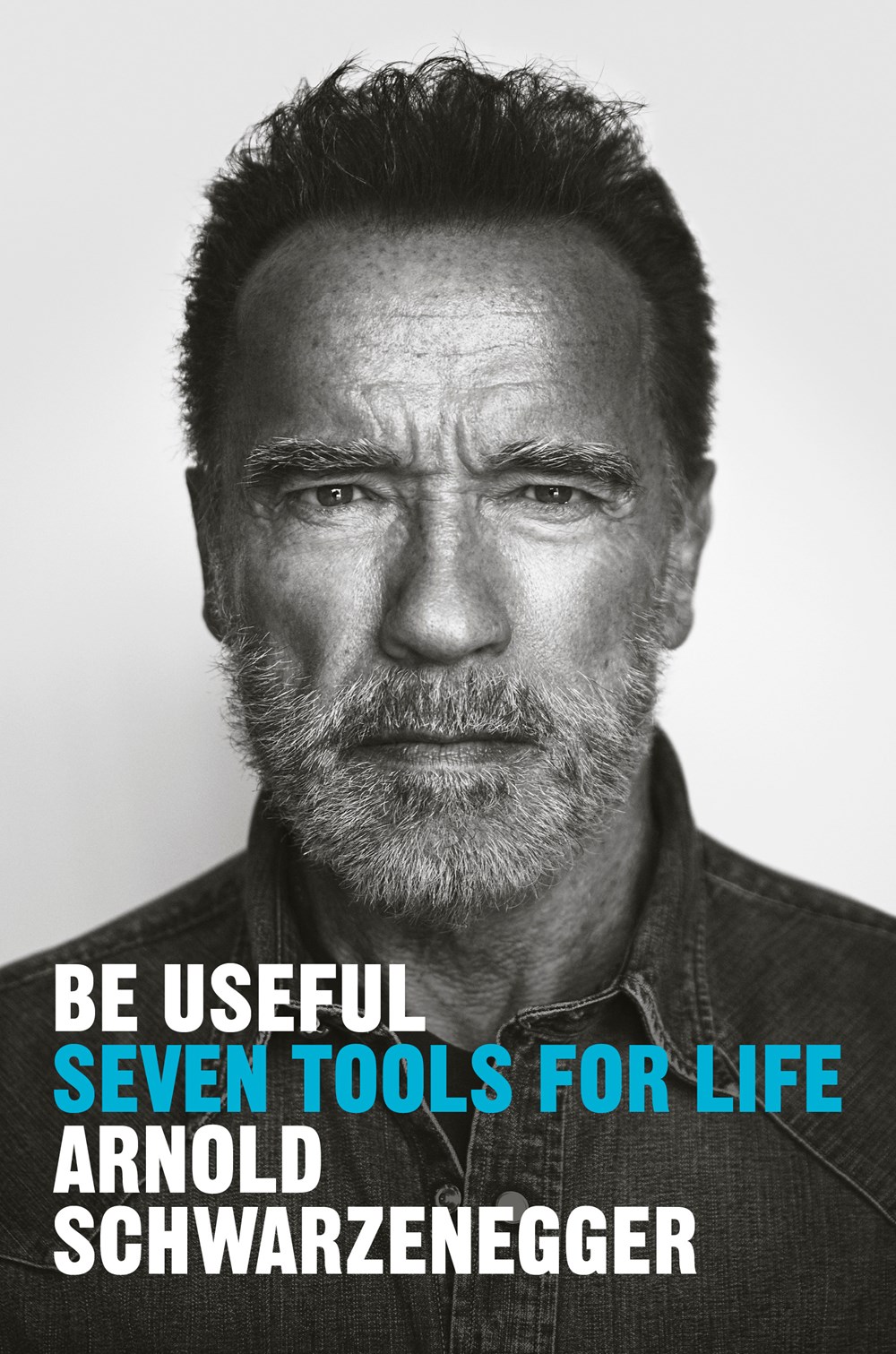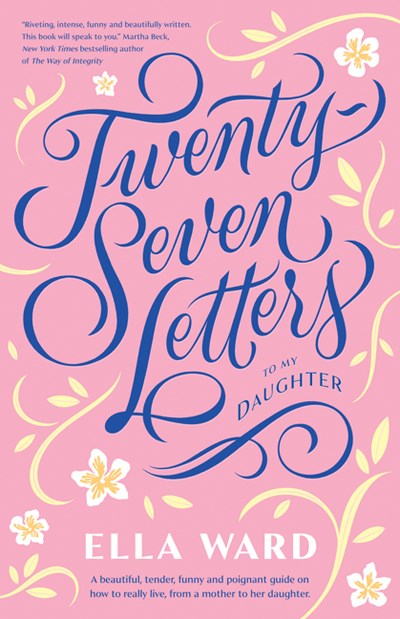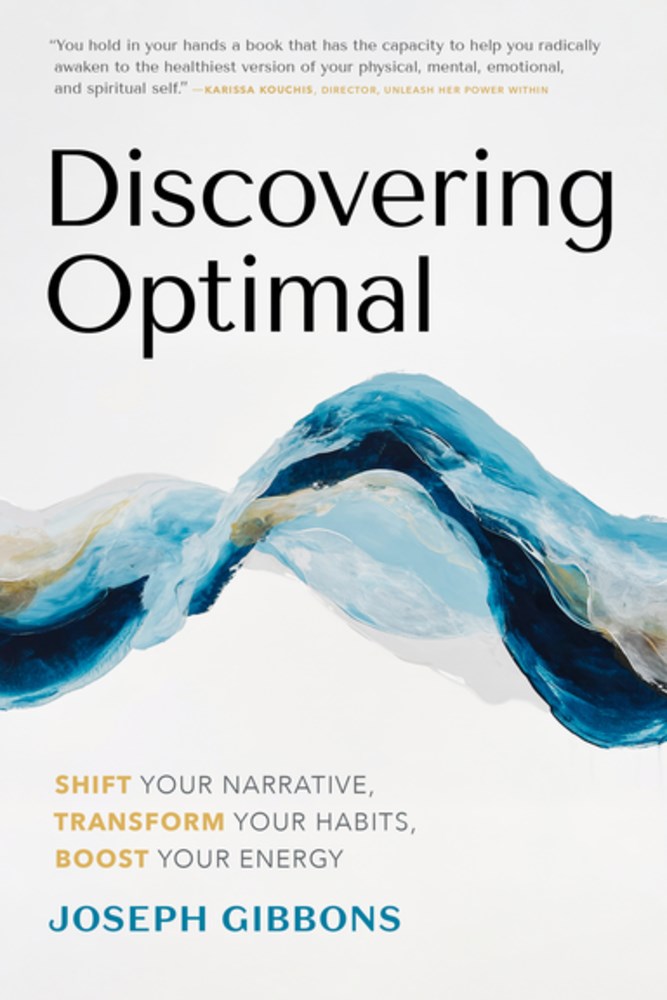Related
This book will appeal to readers interested in contemplating the relationship between life and death from an academic or psychological point of view, and those who are interested in a Jewish perspective on death and loss.
This is a bold book for women who are sick of feeling small and unseen and think there must be more to dating than patriarchal standards of beauty, female subservience, and desire.
Designed as a journal readers can use as a means of self-care, self-reflection, and inspiration, this collection of gentle ideas will please those looking for diary prompts. Most pages are worksheets or include spaces to add personal art and reflections.
PREMIUM
The Story of Upfront Carbon: How a Life of Just Enough Offers a Way Out of the Climate Crisis
An information-heavy overview of the cost of new purchases and how they affect the world. Though it’s BISAC’d as self-help, this is more of a technical book that will be beneficial to those looking to understand the pollution costs embedded in new things or seeking justification for living a simpler lifestyle.
Fans of the author, self-help books, and those interested in clinical psychology will love this book.
As with any book that promises tools for finding purpose and meaning, this requires deep work, which sometimes feels like it was glossed over; still, the principles are sound and thought-provoking. For fans of authors like Martha Beck who are looking for additional clinically sound practices to explore.
PREMIUM
Somehow: Thoughts on Love
Recommended. Readers already familiar with Lamott’s nonfiction work will find comfort in her familiar touchstone topics of faith, family, and recovery viewed through the lens of love and aging. Readers new to Lamott might want to start with her earlier works such as Help Thanks Wow or Traveling Mercies: Some Thoughts on Faith.
The inclusive language and accessible tone, along with McCabe’s knowledge and exhaustive research, make this smart and timely take on ADHD a necessity.
In each letter Wilson shares what she faced and how she overcame it and lets Black girls know that they too can overcome adversity. Her love for Black girls is evident, and they will benefit greatly from reading this book.
This is a singular and honest view of the Enneagram that plays the necessary devil’s advocate for readers wanting to better themselves. A great companion to other titles so libraries can provide a well-rounded approach to the Enneagram.
Those experiencing social media fatigue, abuse, or addiction can greatly benefit from this book. Highly recommended.
A friendly, practical guide filled with excellent advice, this book makes the ups and downs in professional life seem manageable. An excellent addition to career self-help collections.
This is an interesting and well-reasoned approach to help readers slow down, relearn how to relax, and shed any notions of what it means to be an adult.
This title would pair well with journaling. Once readers absorb the concepts of upper-limit problems and genius, they will find this work is an approachable guide to attitude and habit improvements.
With short chapters and some valuable tools, this title isn’t a substitute for therapy, but it does build a sense of community by chipping away at the stigma surrounding anxiety in ways that may appeal to readers who need a little extra support.
PREMIUM
The Happiness Formula: A Scientific, Groundbreaking Approach to Happiness and Personal Fulfillment
Obayuwana notes that this book’s original title was the Mathematics of Happiness but it was changed owing to concerns that this might turn some people off, so perhaps readers who enjoy working with formulas would find his approach helpful.
Smerling’s system for creating or restoring healthy relationships should appeal to readers interested in childhood development and connecting with their younger selves.
This well-written volume encourages users to ask the tough questions in their lives. Best suited for self-help, pastoral, and spiritual counselors.
An excellent resource with attainable outcomes. Roberts delivers another outstanding guide that can be life-changing for those who struggle with anger issues.
Positive and affirming without ever sounding hollow or reductive, this title may help individuals struggling with anxiety to feel less alone.
PREMIUM
Tending Grief: Embodied Rituals for Holding Our Sorrow and Growing Cultures of Care in Community
Barton specifically speaks to the way in which grief impacts queer and BIPOC communities, but their embodiment practice exercises will appeal to anyone working through feelings of trauma, pain, and loss.
Readers who enjoyed VandeHei’s previous work Smart Brevity: The Power of Saying More with Less will appreciate the writing style. Similarly, fans of The No-BS Self-Help Book by Honerod will find this title refreshing. Libraries looking to expand their self-help collections would greatly benefit from adding this book.
Mackintosh’s words deliver because of her honesty and openness about getting past the pain. Highly recommended.
This is highly recommended for young professionals as they navigate their boundaries, and for seasoned workers who need a boost to continue doing their best work.
This book provides meaningful advice in an engaging style. It succeeds in conveying an important message of seeing substance in life’s little things.
Timeboxing is a mindset and a method that could assist readers in staying focused when completing any type of task. Written in a pragmatic, straightforward style, this book is highly recommended for anyone seeking to improve their time-management skills.
This title complements publications such as The Grief Recovery Handbook by John W. James and Russel Friedman, and It’s OK That You’re Not OK by Megan Devine. Libraries looking to enhance their nonfiction collections should consider this book a must-have. It also contains a diverse reference list that supports and expands the topics discussed.
Fans of Groves and McBeath or readers who are looking to improve their relationship with themselves and their approach to partnerships will enjoy this book.
Will appeal to those looking to improve their relationship with stress and to fans of Law’s podcast as well as readers of Gawdat’s books and followers of his popular podcast, Slow Mo.
Giscombé’s commitment, expertise, and compassion is evident as she shares her methods for Black women to experience joy and well-being.
A solid title for those interested in self-help, life coaching, success building, and motivational exercises.
Routledge brings a clinician’s eye for evidence-based research and a lay person’s fascination with everything from Star Wars to pop psychology to the topic of nostalgia, giving readers reasons to think back on their lives, their families, and their histories and consider who they want to become.
Roxo’s book reminds readers that stories matter, and that to be good tellers of their stories, they also need to listen to and learn from the people around them. A beautiful if somewhat jargony exploration of coming home to one’s body, feelings, and truths in collective, vulnerable ways.
A profound yet simple book designed to introduce anyone to mindfulness, with lessons that offer experienced meditators options for renewing their practice.
Heavily footnoted, carefully researched, and ultimately prescriptive not of pills and potions but of foods close to nature and fairly accessible, this title may not be the magical fountain of youth, but it delivers good advice in palatable, practical ways that will make every blueberry taste like it’s erasing a wrinkle or two.
A solid, well-organized work that should appeal to a broad audience of people interested in self-help and psychology.
This work is intentional, resourceful, and a place to land, heal, and grow for those who have experienced similar circumstances to Garcia.
The blend of science and storytelling that Nagoski’s readers expect is on full display throughout this affirming, inclusive guide, which has the potential to transform readers’ sex lives and their general well-being. An essential purchase.
For readers who can get through the book’s more clinical and anecdotal first section, there is some usefulness to be found in Taitz’s easily applicable tools and techniques.
PREMIUM
45 Ways To Live Like an Italian: Italian-Inspired Self-Care Traditions for Everyday Happiness
This charming and instructive book will appeal to Italophiles everywhere.
A refreshing take on the usual romantic relationship self-help; highly recommended for all collections.
Recommended to readers looking for advice about how to reframe negative thought patterns and rewrite their stories and for anyone seeking to learn from someone with a voluminous capacity for finding strength in difficult circumstances.
While the book leans a little heavily on buzzwords like “resilience” and “grit,” it’s full of examples from Schnaidt’s clients, plus ample actionable tips for anyone interested in flexing their creativity muscles to build long-term strength, rather than sparking occasional episodes of genius followed by periods of creative blockage.
This is a great read for anyone navigating the pandemic’s disruption of work; highly recommended for all collections.
A book designed for advocates and activists (and to make anyone who gets a little older each year into an advocate or activist). Walrond disrupts dominant narratives about age, race, class, gender, and sexuality in ways that will catalyze readers to reflect on how they can live boldly beyond middle age.
An honest, self-reflective book, peppered with journaling prompts and suggestions for readers to help process grief. Cervantes also acknowledges that no single book or self-help toolkit can do away with real human loss; this in itself is enough to make her book an essential work for anyone impacted by grief.
PREMIUM
The Sex You Want: A Shameless Journey to Deep Intimacy, Honest Pleasure, and a Life You Love
For readers who are ready to let go of their preconceived notions about sexual roles and categories so they can redefine their relationships with their bodies and their partners.
Readers interested in Swedish culture and in Scandinavian contentment and mindfulness concepts will find this appealing.
Allen’s latest (after 2021’s self-published Shapes of Truth: Discover God Inside You) equips readers to be free.
The authentic voice that made Brown a social media “Mom and Auntie to America” shines bright in this read sprinkled with a warm, welcoming, and inclusive spirituality (God is Brown’s touchstone, but her asides and testimonies are colloquial and nondidactic). Recommended for readers who are already familiar with Brown’s other books (Feeding the Soul; Cooking from the Spirit; Seen, Loved, and Heard) as well as newcomers to her works.
A foray into sound healing that will help readers connect breath, voice, and body in beautiful ways.
Like her father, Applebaum has arranged a piece of work that is valuable for caregivers and those who support them.
Clear, supportive guidance, coupled with the book’s logical structure, will make this a title that couples return to whenever they need a relationship tune-up. An excellent work for newlyweds.
This is a good book for those interested in self-help, psychology, and guided exercises to gain new insights about themselves.
Highly recommended for anyone working through personal or collective loss, such as that caused by the COVID pandemic.
Beautiful, painful, and healing, this is a much-needed reminder of society’s common humanity and the authority people have in determining what it means to share in the work of being human.
A useful book for those generally interested in psychology, sociology, management, or the philosophy of science.
Begel and Keith give insight into their own thoughts as therapists, but this book should not be used as an authoritative guide to handling complex psychological issues and is likely to be of limited interest for most readers.
The best news in this book is that imagination never expires; the key is to cultivate it. For academic libraries where titles about psychology and creativity are popular.
A deft blend of Japanese history and ancient and modern culture, along with theories on luck that readers can use to bring a bit more good fortune into their life.
A must-read for those diagnosed with anxiety, OCD, and PTSD to better understand themselves and how their brains behave. The book is also helpful for a general audience looking to learn more about how fear can influence their lives. A valuable acquisition for undergraduate academic libraries with psychology programs.
This useful book will assist individuals struggling with energy vampires in their personal or work lives.
The thoughtful reflections, lovely drawings, and seasonally inspired affirmations may work for some readers in this written format, but this short guide might be better as an audiobook.
This is a great book for people who want to begin their journey of self-discovery and understanding, as well as those looking for new ways to deal with change in a more positive manner.
Those interested in reading about the causes and effects of perfectionism will find plenty, but readers looking for a self-help guide or practical solutions should look at other books, like Brené Brown’s The Gifts of Imperfection.
While this is the perfect book for readers who are at a crossroads and ready to start a new chapter, there is enough wisdom here for anyone ready to change and introduce more joy into their life.
Englander’s candor is refreshing, as is his belief that love and a positive mindset are all one needs to be healthy and happy and have meaningful senior years.
This title centers concepts of holiness and mysticism, making it more appropriate for readers of authors such as Gabrielle Bernstein than for more skeptical soul-searchers. Offer it to the new-age-spirituality-curious and those searching for accessible entry points into practices related to healing, self-care, and mind-body connectedness.
Sun’s book provides actionable strategies for discovering one’s confidence style, primarily through personal observations but with a dose of science and data thrown in to support her points. Recommended for anyone who’s ready to reflect on the mindset traits and behaviors that limit them so they’re able to achieve the gravitas that Sun suggests can enhance all aspects of life.
Possibly of interest for readers with a scientific background who want to explore the cognitive theories behind anxiety, but those wishing to read a general self-help work should look elsewhere.
Recommended as a next step for readers who have begun practices of introspection and want to find shared experiences, common patterns, and valuable tools for continuing their journeys of self-discovery.
Fans of Tatum’s podcast and Instagram will enjoy the book, but it also could be a good introduction to self-help for readers who are on the fence about the genre.
Although some of the topics can be a bit disheartening, this is a motivating book that could guide anyone seeking to improve the world and/or their life perspective.
PREMIUM
Be Useful: Seven Tools for Life
Schwarzenegger provides a useful, logical, and sometimes humorous blueprint for general readers to achieve a successful and satisfying life, although he chooses to avoid talking about his own misconduct.
This book is highly recommended for those interested in self-help, inspirational stories, memoirs, and advice for living a good life.
An easy recommendation for those who struggle with their own anxiety and may not know where to start in overcoming it. An absolutely worthwhile addition to any library collection as well.
A great acquisition for libraries looking to expand mental health literacy in their patrons. This is an ideal book for people who read The Stress-Proof Brain: Master Your Emotional Response to Stress Using Mindfulness and Neuroplasticity by Melanie Greenberg.
Perfect for readers more interested in evidence-based research than vision boards, this is a recommended addition to any self-help shelf.
This inspiring book is recommended for anyone interested in social justice and enacting positive change.
A thoughtful resource to help readers slow down and recognize the connective power of breath. A recommended purchase for libraries where interest in short informative titles, mindfulness, and yoga is high.
This title is ideal for those looking to flex their empathy muscles and people who are on a journey of healing trauma or want to create better connections with others. Readers of This Book Will Make You Kinder by Henry James Garret will enjoy the way Tennant explores how to grow empathy and how it can change the world. Libraries looking to expand their self-help section will benefit from adding this book to their shelves.
Many of Sternberg’s examples and anecdotes focus on buildings in Arizona and around Washington, DC, so this title could be particularly interesting for libraries located in these areas.
A reassuring book that normalizes life’s struggles. Recommended for persons seeking encouragement in the face of sadness or despair.
articles
ALREADY A SUBSCRIBER? LOG IN
We are currently offering this content for free. Sign up now to activate your personal profile, where you can save articles for future viewing




































































































